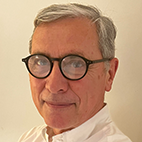HIPI - “Human Immunology, Pathophysiology, Immunotherapy”
HIPI (“Human Immunology, Pathophysiology, Immunotherapy”) Unit 976 is an Inserm and Université de Paris research laboratory created in 2019. It is composed of ten teams including more than 200 members – academic researchers, clinicians, post-doctoral fellows, Ph.D students and an administrative staff. They are all located at Saint-Louis Hospital in Paris, France. HIPI laboratory belongs to the Saint-Louis Research Institute.
The research is focused on the following different scientific domains:
- Immuno-oncology: tumor micro-environment, cutaneous tumors including melanoma and NHL, breast and urological cancers, tumor genomics and immunity, oncogenic pathways and immunity and graft versus leukemias;
- Stem cells and immunity: hematopoietic stem cells, lymphoid development, cutaneous stem cells, mesenchymal stem cells and immunoregulation;
- Immuno-inflammation: inflammatory dermatoses, graft-versus-host disease, transplantation, langerhans cell histiocytosis and allergy.
In addition to these 3 complementary fields, HIPI is also focused on the following cross-center projects (technological /methodological transversal axes) that may contribute to the development of combined therapies through multi-disciplinary approaches including human cellular and tissue systems, bioinformatics, biostatistics, mathematical modeling and finally immunotherapy, immunomodulation, cell therapy.
ABOUT
History of the unit
HIPI unit, created in 2019, is gathering two former Inserm units (U976 and U1126) and four research teams originating from three Inserm units (U1160, U1149, and U944) and two CEA units. It is led by Jean-Christophe Bories, director. The administrative management of the unit is ensured by Hubert Grillot, Secretary General.
Missions
Our essential mission is to decipher novel immunological mechanisms at the molecular, cellular and tissue levels, and to link them to the physiopathology and improved clinical management of various immune-related diseases. Hence, we are aimed at basic, translational, and clinical research in a balanced and interconnected manner.
This is done in tight collaboration with various clinical departments of the Saint-Louis Hospital, in particular medical oncology, hematology, hematopoietic stem cell transplantation, renal transplantation, onco-dermatology, inflammatory diseases, urology, radiotherapy, interventional radiology, and pathology.
Additional and related missions include the fostering of innovation through efficient industrial partnerships, which should also help us to speed up clinical applications, as well as education and training of young researchers and medical doctors in our areas of expertise.
Last, we also see an important mission in promoting good basic and clinical research practice, scientific integrity and ethics.
Scientific objectives
The unit’s missions in the area of human immunology and applications to the physiopathology and improved clinical management of human diseases.
For each scientific domain including immune-oncology, stem cell and immunity and immunoinflammation, we pursue scientific objectives at several levels:
- Deciphering basic mechanisms involved in various human inflammatory diseases, in particular skin allergy (diversity and function of T regulatory cells, T helper cell subsets, pro-allergic cytokines), Langerhans cell histiocytosis (immune cell diversity and immune checkpoints in the inflammatory microenvironment), endothelial cell immune cell crosstalk in organ transplant rejection and in cancer cellular and molecular mechanisms of graft-versus-host disease.
- Identifying novel immune regulatory mechanisms and functions associated to T cells, dendritic cells, invariant T cells (MAIT cells), NK cells, B cells, different types of stem cells (including mesenchymal stem cells and epidermal stem cells), and epithelial cells (normal and tumoral).
- Bridging immuno-oncology and tumor cell genomics through the study of novel links between oncogenic molecular pathways and factors modulating the immune and inflammatory response in cancer, with a particular focus on breast cancer, melanoma, and cutaneous T-cell lymphoma.
- Developing novel methodologies for the study of ex vivo purified human cells and tissues, through the use of micro fabrication and tissue engineering. This will be particularly applied to human primary tumor explants in order to develop preclinical models to test combinatorial approaches including immune checkpoint targeting.
- Identifying novel disease biomarkers in our clinical areas of expertise, with diagnostic, prognostic and/or predictive value. A particular focus will be in melanoma by integrating the use of image analysis through machine learning approaches and the analysis of the tumor microenvironment. We would also develop complex composite signatures in the breast cancer apocrine subtype. We will develop predictive algorithms associated to various clinical trials in melanoma and cutaneous T-cell lymphoma (Sezary syndrome).
- Developing innovative immunotherapies based on a variety of technologies, including cell therapy (CAR T cells in myeloma), vaccination and monoclonal antibody therapy (anti-HLA-G and anti-KIR3DL2 /Lacutamab).
- Integrating human disease complexity within the above objectives through systems biology and systems medicine approaches. This will be primarily developed in the context of a systems biology program to deceive for the breast cancer and melanoma cancer microenvironments, with subsequent application of similar approaches to other chronic inflammatory diseases.
Management Committee
Composed of the director, the co-director and the Secretary general. Regular meetings on a weekly basis and short informal meetings on a daily basis, as required.
Steering Committee
The steering committee includes the Unit’s director and co-director, Secretary-General, all team leaders. The Steering Committee meets once a month. The Steering Committee ensures compliance with the general rules governing the operation of the Unit or scientific orientations.
HIPI – “Human Immunology, Pathophysiology, Immunotherapy”
Unit 976

Director:
Jean-Christophe BORIES

Secretary General:
Hubert GRILLOT

Our team leaders
- Onco-dermatology and Therapies
Anne MARIE-CARDINE - Skin Immunity and Inflammation
Jean-David BOUAZIZ - Endothelium, inflammation and alloreactivity
Nuala MOONEY / Co-director: Denis GLOTZ - Immune responses in the immunocompromised host: Tolerance vs GVHD
Sophie CAILLAT-ZUCMAN / Co-director: Gérard SOCIÉ - Lymphocyte differentiation and lymphoid disorders
Jean-Christophe BORIES - Pathophysiology of breast cancer
Jacqueline LEHMANN-CHE - Stem Cells Biotechnologies
Jérôme LARGHERO - Physics of the Cytoskeleton and Morphogenesis
Manuel THERY - Human systems immunology and inflammatory networks
Vassili SOUMELIS - HLA-G and other immune checkpoints in oncology and transplantation
Nathalie ROUAS-FREISS / Co-director: Edgardo CAROSELLA – François DESGRANDCHAMPS - T cell immunity in cancers and infectious diseases
Pierre TONNERRE


